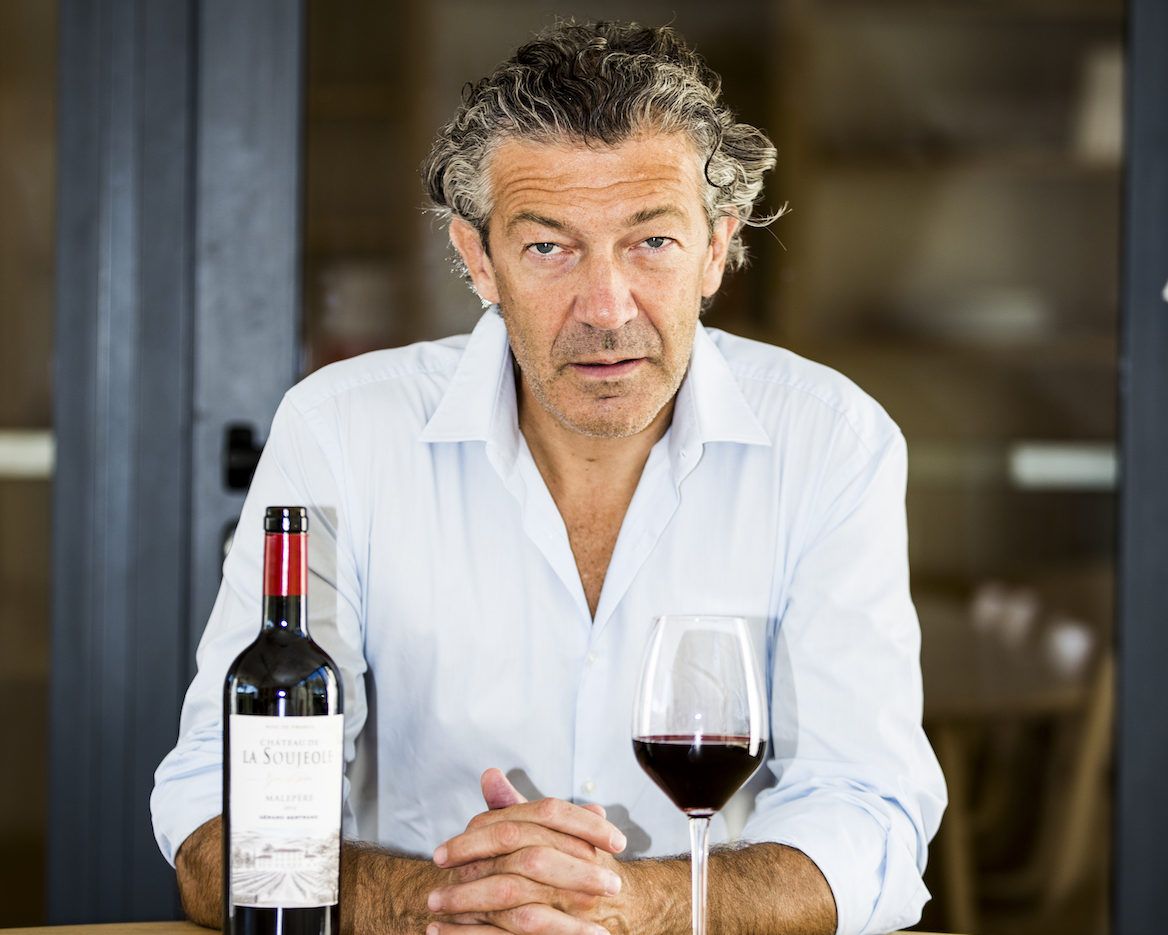In less than three decades Gérard Bertrand’s wines have found distribution in 171 countries, with the UK targeted for further expansion, especially in the on-trade
September is going to be a busy month for Gérard Bertrand. For a start there’s the Rugby World Cup where he will be hoping that France will be lifting the trophy in Japan. An ex-professional rugby player for his hometown Narbonne, he has brought the same passion, teamwork ethic and headstrong business approach to a wine business he has built from scratch into an international empire turning over $150 million in 2018, with more than 300 employees.
September is also the start of harvest in the Languedoc-Roussillon, the world’s largest wine region, and one which Bertrand hopes will become the world’s first completely organic wine region. A steadfast proponent and believer in biodynamics, he does everything he can to promote its practices as well as the winemaking strengths of the region he holds so dear to his heart.
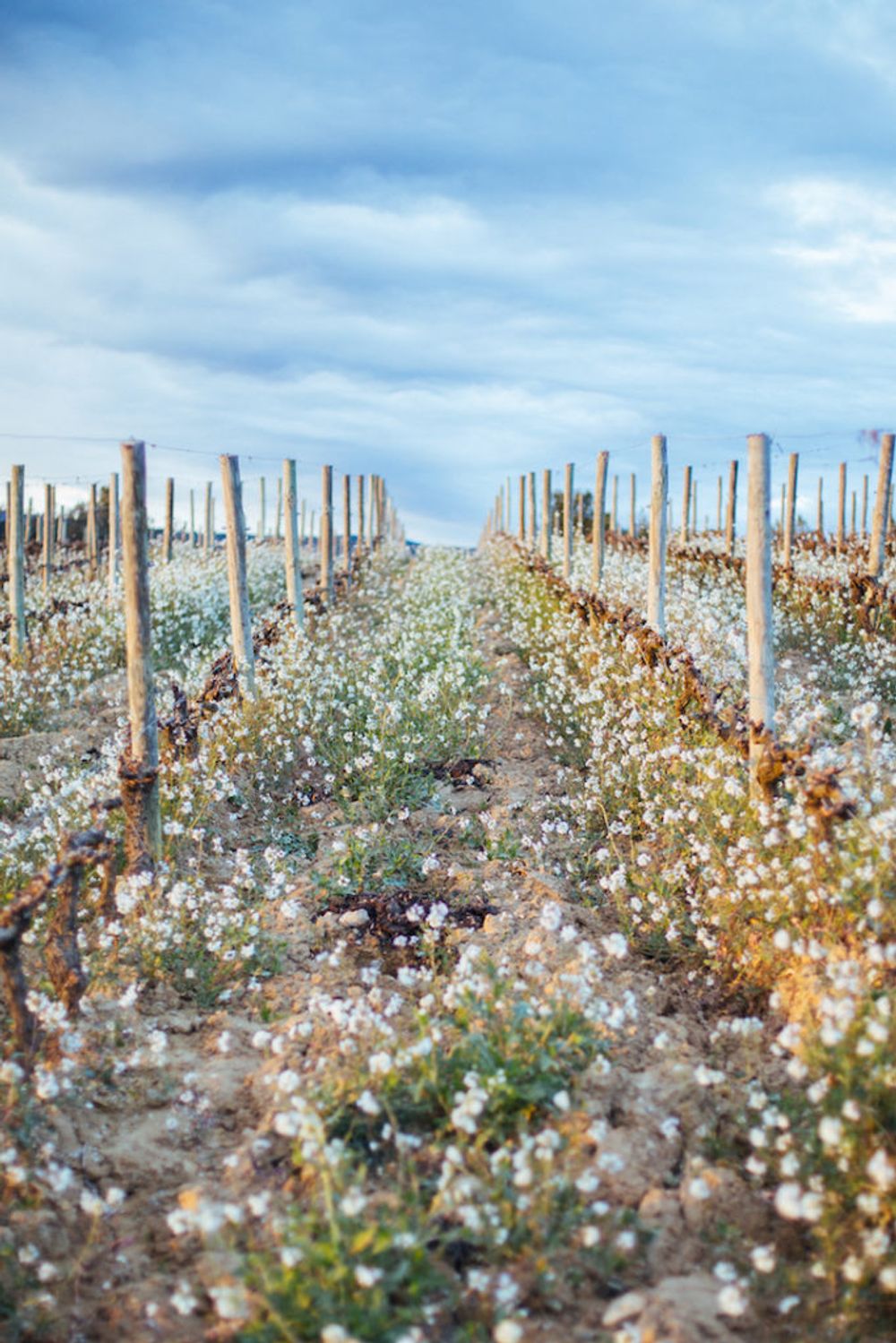
The vineyard at Clos d’Ora in the Minervois, from where Bertrand produces his top red wine
Did your vines and your growers have problems with the high temperatures this summer?
Our vines did not suffer that much from the heat wave for several reasons: first we are relatively far from the Gard – the epicentre of this weather phenomenon; we also farm our vines with biodynamic practices and, as a result, they benefit from applications of preparations such as horn dung and herbal tea on the foliage that stimulate the physiology and vitality of our vine stocks. And we take care to limit the treatments (sulphur) that can burn the foliage during heat waves
Is quantity down as a result of high temperatures? If so, by how much?
The rainfall deficit this year generates water stress on the soils and limits the “filling” of the grapes. But, on this phenomenon again, biodynamics is key to help the vines adapt themselves to the weather condition. As far as we know now, this will not affect the volume we are expecting and, a few days before we start harvesting, the 2019 vintage promises to be of a very high quality!
How worried are you about climate change?
We are concerned of course. Being a winemaker is a responsibility so we are determined to act responsively as we are convinced that working in harmony with nature is the best way to preserve biodiversity and act for the benefit of our planet. It is not too late. We’ve chosen to practice biodynamics and we now encourage our ecosystem to change their practices into organic, after all, the South of France has the potential to become the first organic wine region in the world.
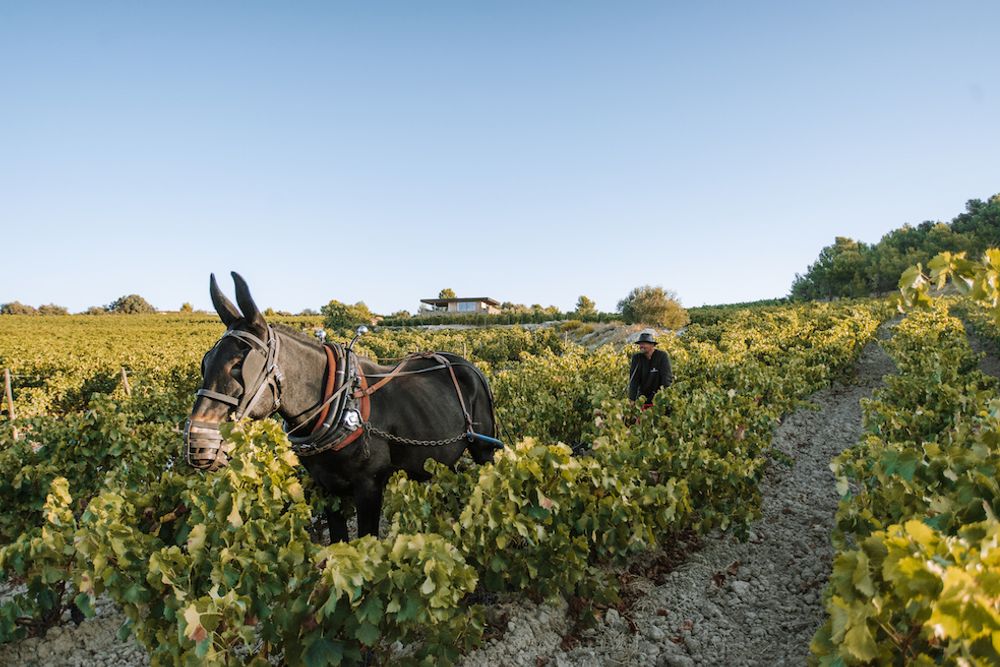
Only mules are used in the Clos d’Ora vineyard
What allowances are you making in your business strategy to account for climate change?
To fight against global warming, we need to do precise work in the vineyard and to ‘listen’ closely to our soils.
Our approach is to first favour the choice of grape variety adapted to the soils (climate is after all one of the elements of soil composition).
We ensure our wineries adhere to best practices, designed for the most efficient energy use. Our Cap Insula facility, for example, has been certified as carbon-neutral.
We also prioritise the development of other new practices that could allow us to do more and better: agroforestry, resistant grape varieties, experimenting with electric tractors, and so on.
Congratulations on 2017 L’Hospitalet winning the IWC Champion Red Wine 2019 award. Was it a surprise?
When we choose the wines that we submit to the IWC competition, we do believe that they can compete with the best wines in the world. That said, receiving this award was a really pleasant surprise and most of all wonderful recognition for the precise, everyday work we do in our vineyards and for our commitment to preserving their biodiversity with biodynamics.
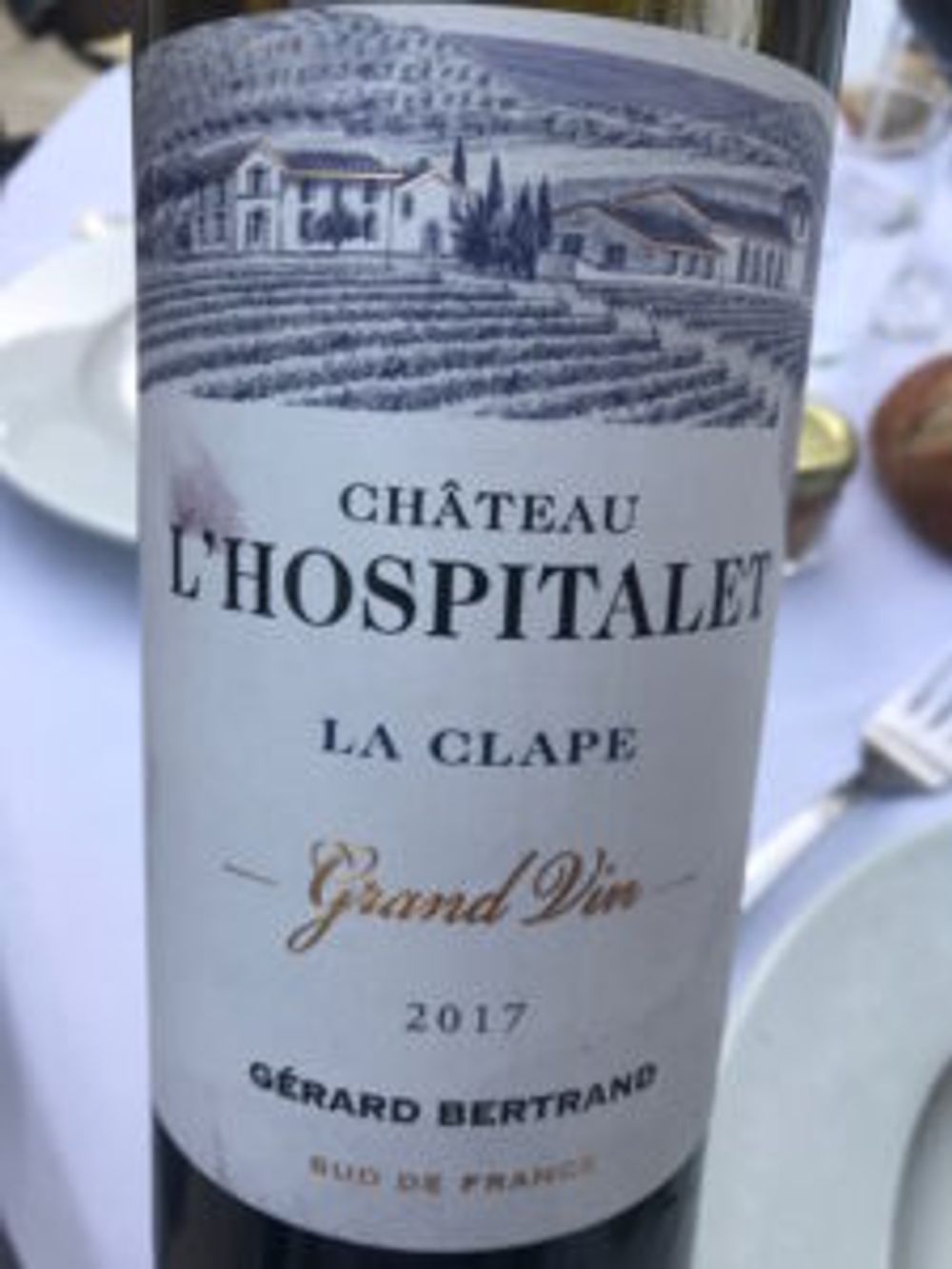
It is also a great experience because we started selling wines in the United Kingdom 35 years ago, it was a long battle but we were recognised as the Red Winemaker of the year in 2012 and now finally as the Best Red Wine of the World with Château l’Hospitalet Grand Vin Rouge 2017!
Is the world ready for a €190 rosé from the Languedoc?
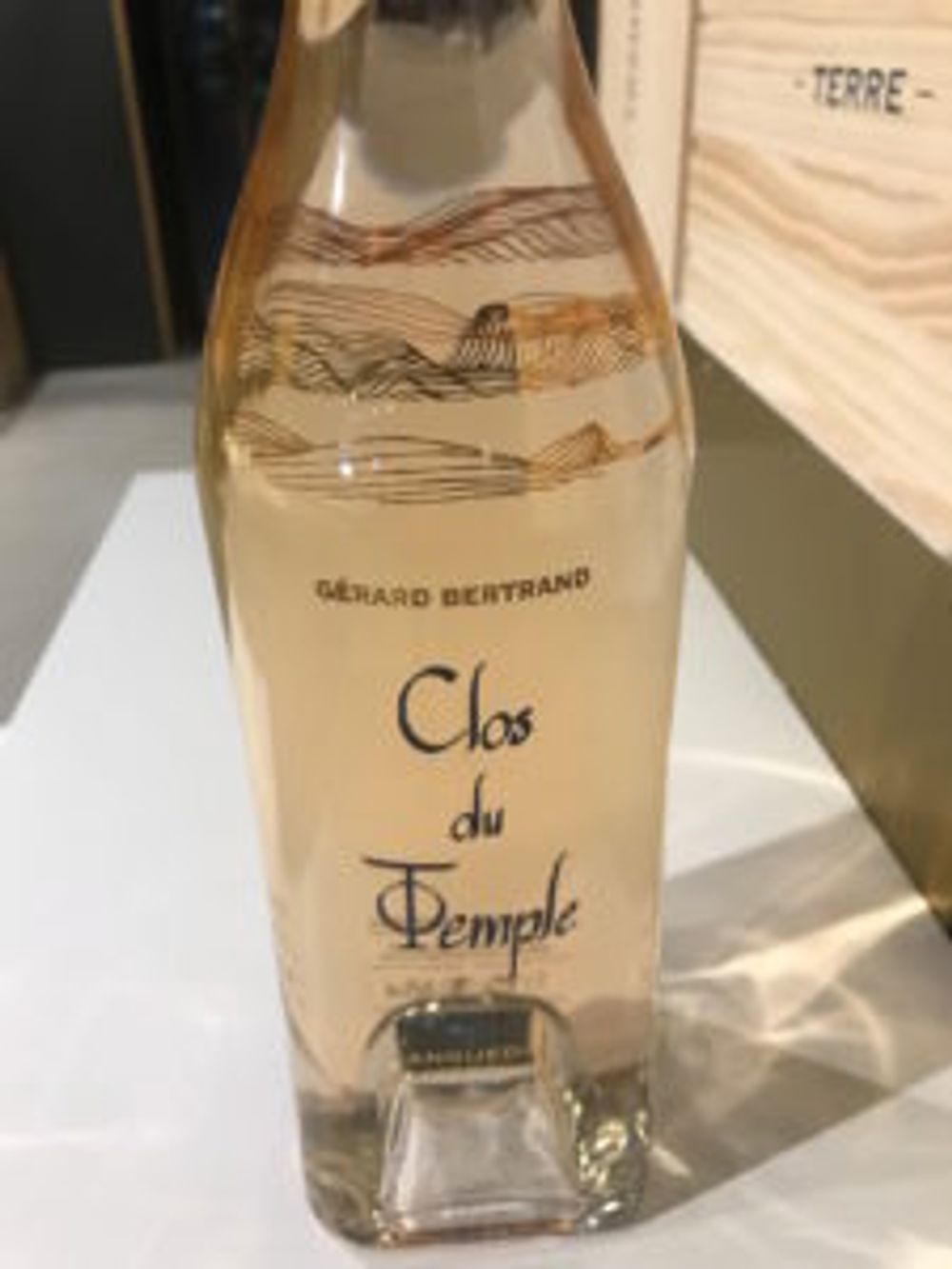
Clos du Temple – a new Rosé from Gérard Bertrand with an RRP of €190
Yes, we absolutely do believe that the world is ready and the success of Clos Du Temple on the market just two months after its launch confirms our intuition. Our ambition with Clos Du Temple is to create a grand cru rosé in the Languedoc. It is a work of precision: the vines are cultivated biodynamically, grapes are picked by hand and only the finest juice is selected. For the first vintage, we have produced only 9,000 bottles. This rosé stands apart from all others, one that will exalt extraordinary dinners and special celebrations.
Do you think that the Languedoc-Roussillon region as a whole gets enough credit for the quality of its wines?
I think the Languedoc-Roussillon has succeeded in building a reputation for making premium quality wines during the last decade, as numerous international ratings and awards can testify – IWC, Robert Parker, Wine Spectator, Decanter, Jancis Robinson, to mention just a few. And I think that nowadays, the Languedoc ranks as a premium and super premium wine region on many markets, as is the case with our wines, and also increasingly as a destination for gastronomic and wine tourism.
Do you think that the Languedoc-Roussillon as a wine region is too diverse and fragmented?
I think that the diversity is the richness of the Languedoc-Roussillon – and what makes it unique. Our region offers an exceptional diversity of terroirs and of grape varieties, that allows creating great red, rosé, white, fortified and even sparkling wines. I have always been very committed in promoting this richness and diversity around the world.
Do you think that consumers understand it? (There being so many AOCs and IGPs)
The South of France is the world’s biggest winemaking region. The diversity of AOCs and IGPs is the result of the multiplicity of terroirs and grape varieties, so we must consider it to be a strength and a special characteristic compared to other wine regions. But there is still a lot of work to be done in terms of educating consumers and I think that wine tourism will be instrumental in sharing this knowledge.
People have said that the problem with the Languedoc-Roussillon is that it lacks a ‘unified message to the world’. Do you agree? If so what do you think that message should be?
I do think winemakers here are joining forces more to promote the quality of our wines and our exceptional terroirs.
That said, the message I’ve been delivering for the past 30 years is based on 2,000 years of winemaking history in the region, its unique diversity of terroirs and grape varieties, and a strong commitment to quality which gives our region all the strength to make excellent wines.
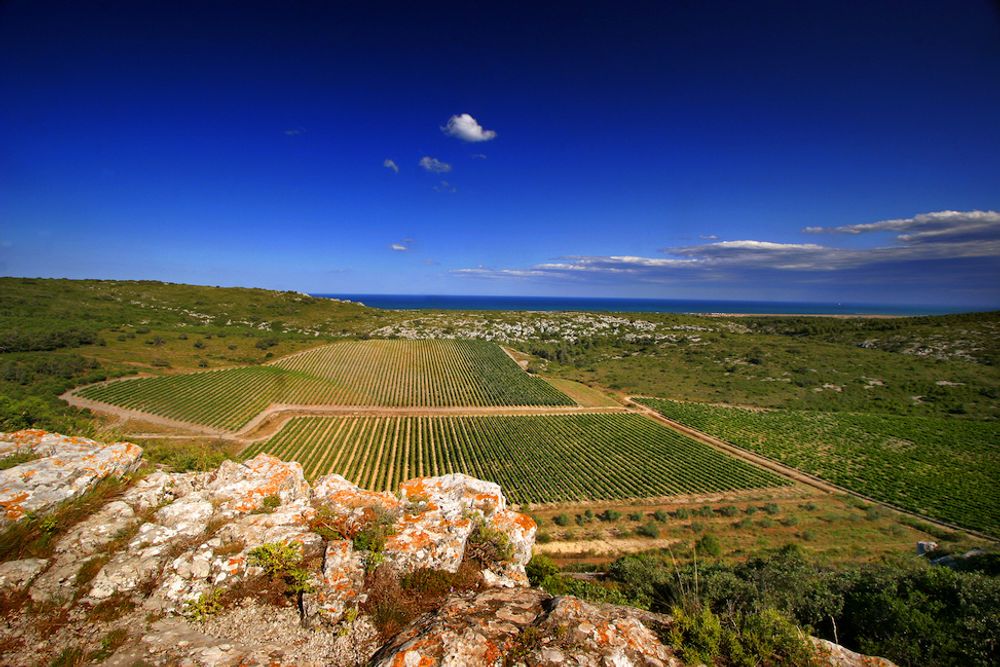
Part of the vineyards at L’Hospitalet from where this year’s Champion Red Wine 2019 IWC comes from
What do you hope to achieve over the next 10 years?
Our ambition is to be internationally recognised as the leader in premium French wines.
We want to continue promoting biodiversity throughout biodynamic farming and encouraging the extension of the organic wine production in the Languedoc.
Another true ambition is to keep innovating and creating new experiences and special moments in connection with wine for our markets and communities of consumers.
Also we want to promote the South of France Art De Vivre which is so dear to us by bringing people together around wines from the South of France, and to create interconnections between gastronomy, culinary traditions around the globe and art in all its forms, including music, painting and sculpture.
How will you do that?
With ambition, audacity and organisation.
Are you in the process of buying vineyards or still preferring to do long term deals with growers?
We plan to develop both sides. We may buy new estates with high potential terroirs if the opportunity arises. And we want to continue working hand in hand with grape growers and winemakers of the region.
Are there enough good grower-vineyards in the region to aid expansion?
The potential is not an issue.
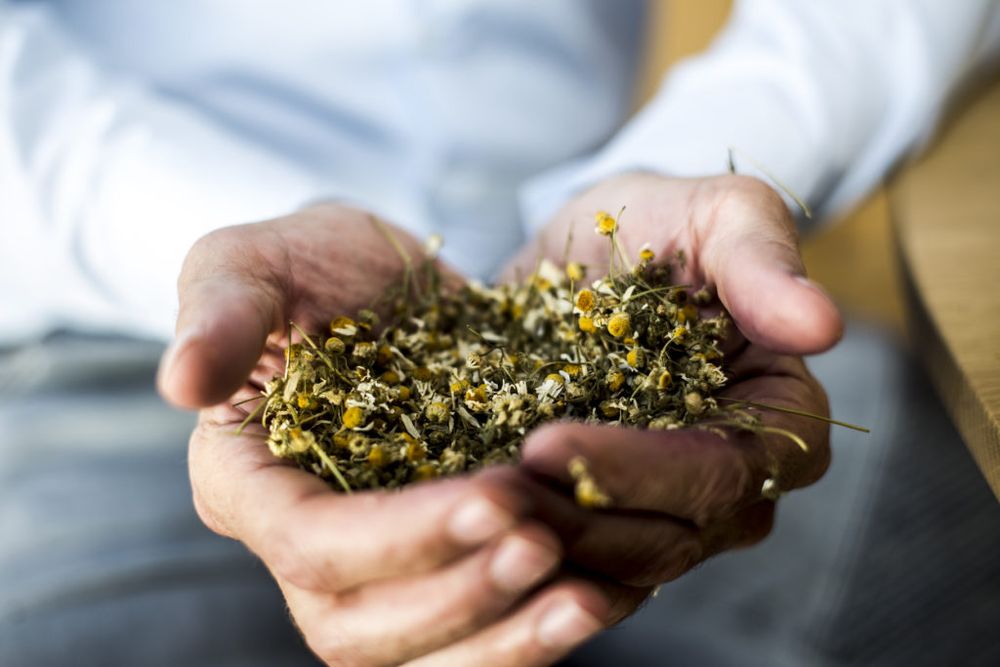
90% of your fruit comes from external growers – does this make it difficult to control biodynamic and organic standards?
We control 100% of the vineyard for the biodynamics programme. For organic wines,the long-term partnerships that we settled with the external winemakers allow us to accompany and advise them on the organic winemaking process. We work with a common strategic line for organic and in conversion to organic wine production.
How important are export markets to future growth? And what are the major markets?
We are now sold in 171 countries and our global expansion includes the development of our distribution in every country. North America, Europe and Japan are the most mature markets for us. South America, Africa and Asia are our new frontiers.
How important is the UK in your overall strategy?
UK is a priority for usand we want to become much more important in the on-trade
Are you growing your business there/ is it shrinking?
In every export market, we need to build a strong partnership with distributors who believe in the potential of our brand. In the UK, we now want to develop our distribution, particularly regarding our Prestige wines – we need to gain placement on shelves and continue our educational efforts to promote our wines and terroirs.
What are your views on Brexit?
We believe about “souveraineté” of each country and do not want to make any comments.
Do you think having Boris Johnson as the UK prime minister is a good thing for the European wine trade?
Does he drink wine?
What has been the secret of your success?
Creating premium wines is analchemyof passion, precision and attention to a thousand and one details.
If you could turn back the clock 20 years what do you wish you had done differently?
I do work better now than when I had less experience and I hope I will continue improving myself. But, I’m not sure I would make other strong decisions. And frankly, looking back to where we stood 20 years ago and where we stand now, I do not regret any decision we made. And I’ve always preferred looking to the future instead of the past.
